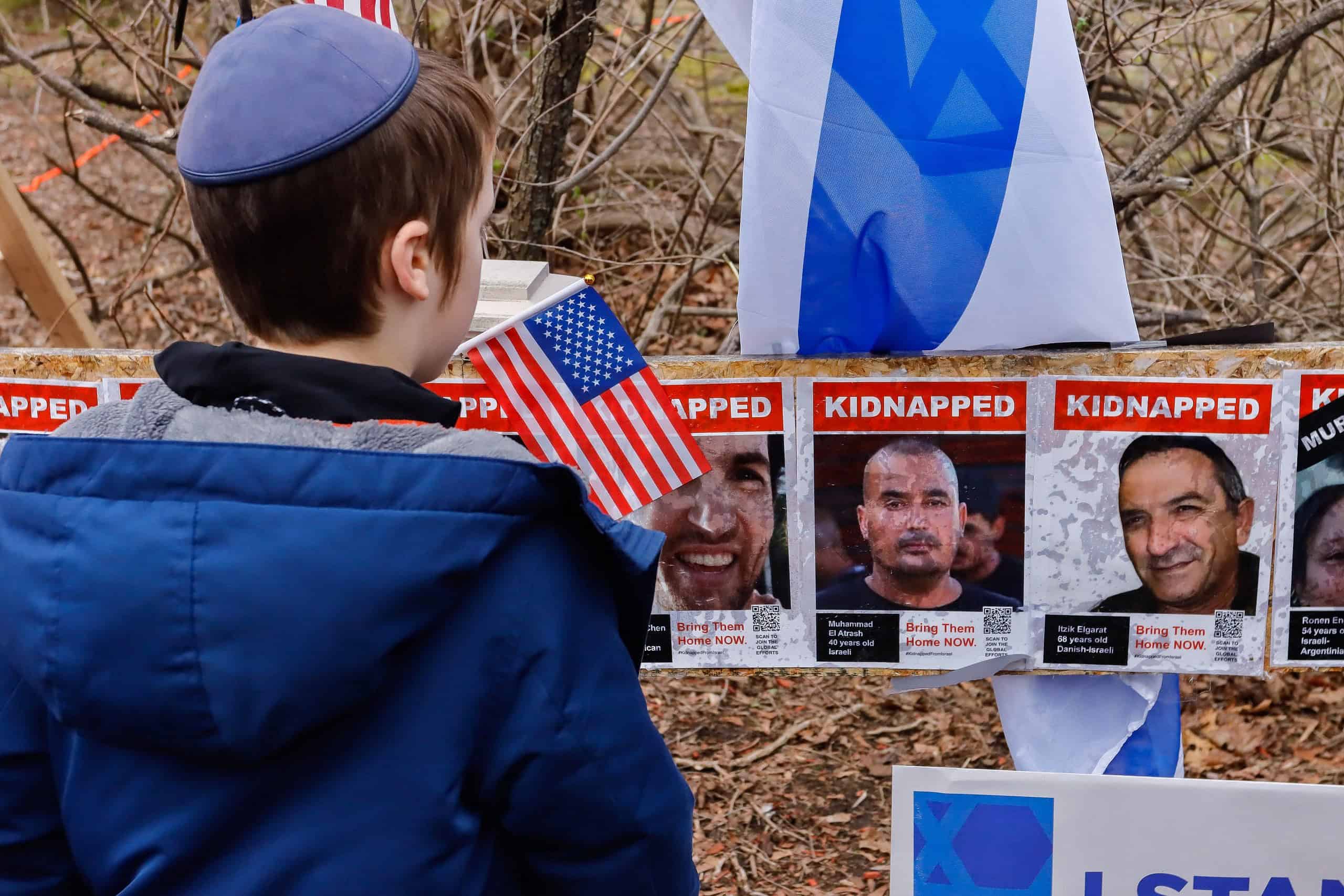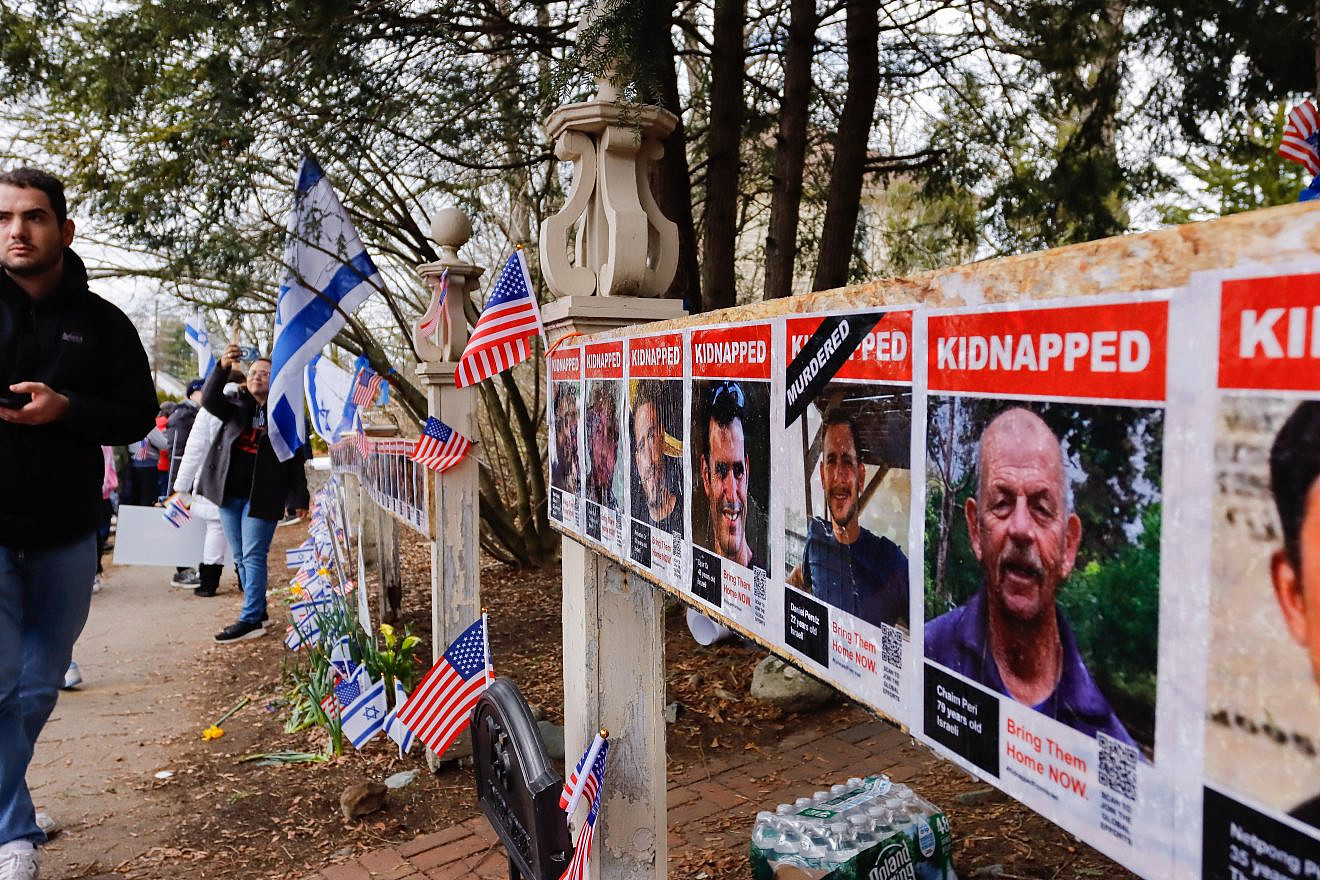Students and teachers put the Massachusetts Teachers Association under a microscope and legislators promised action at a virtual summit on combating antisemitism hosted by affected Bay State organizations on June 10.
Billed as a “community hearing,” the meeting featured disturbing testimonies of rampant antisemitism in Massachusetts K-12 schools, especially in the wake of Hamas’s Oct. 7 terrorist attacks and Israel’s military reaction.
“The speakers, especially the students and the teachers, were just unbelievable,” Robert Mayer, national co-chair of the Israeli-American Civic Action Network, told JNS. “Their stories were so powerful, heart-wrenching and angering. I told the community that I feel shocked, angered, moved, but most of all, energized, because we have to take action now.”
ICAN co-hosted the summit with Massachusetts Educators Against Antisemitism, CAMERA Educational Institute, Christians and Jews United for Israel, StandWithUs K-12 Educator Network, the Combat Antisemitism Movement and the Consulate General of Israel to New England.
Speakers at the event urged politicians and public officials—several of whom attended—to recognize the problem of antisemitism on Massachusetts campuses and take necessary steps.
The Massachusetts Teachers Association, a union that is affiliated with the National Education Association, called in December for an immediate ceasefire in the Israel-Hamas war without mentioning Hamas’s atrocities or urging the return of hostages held captive in Gaza.
In March, the Massachusetts union’s task force on “anti-racism” hosted a webinar titled “The Struggle Against Anti-Palestinian Racism,” which reportedly included a slide identifying Jewish organizations to be condemned as part of a Zionist “machine.”
Nirit Friedlander, the Massachusetts co-chair of ICAN, told JNS that the union “encourages a restrictive and potentially dangerous concept for the safety of our children, claiming anti-Zionism is not antisemitism,” adding that “it promotes content that favors the Palestinian narrative while consistently disparaging the Israeli side.”
‘I should not have to be my only ally‘
Oron, an eighth-grade student and son of two Israeli immigrants whose last name was not provided, said his mother contacted his school’s principal after a fellow student told Oron that Hamas’s massacre was in self-defense. Another student had told Oron that Israel, as a Jewish ethno-state and apartheid state, shouldn’t exist, he continued.
“The principal invited me to debate against the students, suggesting it was an acceptable response to acts of antisemitism,” Oron said.
The principal was evidently so impressed by the student’s debate performance that he “felt obligated to contact my mother and praise me,” Oron said during the virtual summit.
His mother was not impressed by the principal’s decision to have her son debate peers in response to their antisemitic statements.
“My mom had to go to the school and explain to him that this behavior was unacceptable due to the fact that it was not my job to educate others on the conflict and that it was not OK to put me on the spot to debate against others in regards to antisemitism and the Israeli-Palestinian conflict,” said Oron, adding that “I should not have to be my only ally against antisemitism at school.”
Then in April, as part of Arab-American Heritage Month, students were shown a pro-Palestinian movie that “erased Israeli history and Jewish culture,” Oron said.

‘Contribute to responsible innovation and growth’
An Israeli-born high school student, who identified himself as Gil, told attendees that he wanted to talk about “nothing.”
“Nothing is the response I received after asking both my city’s school committee and the state Board of Education what they were going to do about the rising antisemitism and anti-Zionism in our schools,” Gil said.
“Nothing was the level of support the school gave me and my community even after we asked for it and were promised it,” he added. “Nothing is what was shared with students about how graffiti and other hateful actions will be handled to make sure that students know the consequences.”
Gil says he is looking forward to moving on to college, and a successful academic and professional career, so that “my generation and I can contribute to responsible innovation and growth,” he said.
“But we will not be able to do that if schools and universities are not making a safe environment, or if they keep tolerating violence or hate against Jews, Israelis or anyone else,” he added.
‘Remarkable, brave and courageous young folks’
John Velis, a state senator who has been active in developing Massachusetts legislative responses to the rise in antisemitism in schools, praised those willing to speak out at the summit.
“On the one hand, we’re here talking about this horrific subject matter,” Velis said. “In the same dialogue, I’m hearing from these absolutely remarkable, brave and courageous young folks.”
Velis noted an amendment as part of a budget bill that passed the state senate by a 40-0 vote and is now being discussed in a conference committee of the state House. It would require the state’s Department of Elementary and Secondary Education to provide schools with an antisemitism curriculum, materials and professional development.
“I am convinced so much of this is just that people don’t even know where to begin,” Velis said. “I think us requiring them to look at this stuff, to teach antisemitism, to talk about, is really important.
“We’ve got a long history of when there is a group who is being marginalized, who’s being discriminated against, we don’t hesitate to identify them by name and say we need to be your advocate,” he added.
Meron Reuben, the Israeli consul general to New England, said part of the problem is that the Jewish community is waking up belatedly to the stark rise in Jew-hatred.
“I don’t think the Jewish community realized that antisemitism was actually so bad,” he told JNS. “They probably realize that there was latent antisemitism in society, but I don’t think they really understood how bad it was.”
‘You cannot count on goodwill anymore’
The bulk of the recent focus has been on American university campuses, where pro-Hamas students and outside agitators have disrupted and threatened Jewish campus life. But Reuben said that some grade schools have also become breeding grounds for antisemitism.
“I think it is something that is already permeating society in the K-12 area, and I think that is one of the problems that is very, very disturbing, especially if you look at something like the MTA and some of the courses that they are giving,” Meron said of the union. “It’s very worrisome and very problematic.”
Friedlander told JNS that Jewish students in her state only “seek an education free from bias and slander.”
“Instead, they are subjected to harmful rhetoric, with no oversight, accountability or empathy. Why should they endure this? They are just children,” Friedlander said.
Mayer said the only way to affect change at this point is through policy.
“You cannot count on goodwill anymore,” Mayer told JNS.
He said that in addition to pushing for change within the legislature, each city’s or town’s school policy-making body must be approached, in addition to applying pressure on the union “to cease this openly antisemitic activity.”
Mayer said that he was encouraged by the attendance at Monday’s summit. “There’s a lot of work, and it’s complicated, but when we have 700 households listening in, and there are going to be more that are going to see the recording, people are energized,” he said. “When it all comes from the community, from the citizenry, you know that’s when change happens.”


























